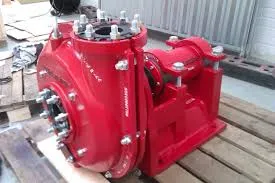igbo
- Afrikaans
- Albanian
- Amharic
- Arabic
- Armenian
- Azerbaijani
- Basque
- Belarusian
- Bengali
- Bosnian
- Bulgarian
- Catalan
- Cebuano
- Corsican
- Croatian
- Czech
- Danish
- Dutch
- English
- Esperanto
- Estonian
- Finnish
- French
- Frisian
- Galician
- Georgian
- German
- Greek
- Gujarati
- Haitian Creole
- hausa
- hawaiian
- Hebrew
- Hindi
- Miao
- Hungarian
- Icelandic
- igbo
- Indonesian
- irish
- Italian
- Japanese
- Javanese
- Kannada
- kazakh
- Khmer
- Rwandese
- Korean
- Kurdish
- Kyrgyz
- Lao
- Latin
- Latvian
- Lithuanian
- Luxembourgish
- Macedonian
- Malgashi
- Malay
- Malayalam
- Maltese
- Maori
- Marathi
- Mongolian
- Myanmar
- Nepali
- Norwegian
- Norwegian
- Occitan
- Pashto
- Persian
- Polish
- Portuguese
- Punjabi
- Romanian
- Russian
- Samoan
- Scottish Gaelic
- Serbian
- Sesotho
- Shona
- Sindhi
- Sinhala
- Slovak
- Slovenian
- Somali
- Spanish
- Sundanese
- Swahili
- Swedish
- Tagalog
- Tajik
- Tamil
- Tatar
- Telugu
- Thai
- Turkish
- Turkmen
- Ukrainian
- Urdu
- Uighur
- Uzbek
- Vietnamese
- Welsh
- Bantu
- Yiddish
- Yoruba
- Zulu
Telephone: +86 13120555503
Email: frank@cypump.com
Nov . 09, 2024 08:49 Back to list
High-Performance Slurry Pumps for Heavy-Duty Industrial Applications and Efficient Material Transfer
Understanding Large Slurry Pumps An Essential Component in Industrial Applications
In various industrial processes, the efficient handling of abrasive and viscous materials is crucial. Large slurry pumps have emerged as a vital solution for transporting dense mixtures of liquids and solids, commonly referred to as slurries. These pumps are designed to manage the challenges posed by such mixtures, which can be abrasive, corrosive, and often require careful handling to prevent damage to equipment.
What is a Slurry Pump?
A slurry pump is a type of pump that is specifically engineered to move slurry—a combination of liquid and solid materials. Unlike standard pumps that primarily handle clean fluids, slurry pumps are built to endure the harsher conditions presented by slurries. They feature robust constructions, employing materials that resist wear and corrosion, ensuring longevity and reliability in demanding environments.
Applications of Large Slurry Pumps
Large slurry pumps are widely used in several industries, including mining, construction, wastewater treatment, and chemical manufacturing. In mining, for instance, they facilitate the transport of mineral slurries from extraction sites to processing plants. This is critical for the efficient recovery of valuable resources like gold, copper, and coal. In wastewater treatment, slurry pumps help move thick sludge to treatment facilities, ensuring a continuous and effective cleaning process.
In the construction sector, these pumps are often utilized for dewatering applications, removing excess water mixed with soils and sediments from excavation sites. Their robust design allows them to handle high solids concentrations, making them indispensable for challenging construction environments.
Key Features of Large Slurry Pumps
1. Material Integrity Large slurry pumps are constructed from high-quality materials such as heavy-duty cast iron or elastomers that resist wear and corrosion. This is vital for ensuring the pump's durability when handling abrasive materials.
large slurry pumps

3. Variable Impeller Designs The impeller design can greatly influence the pump's performance. Large slurry pumps often feature different impeller designs to optimize efficiency depending on the type of slurry being handled.
4. Robust Sealing Systems Sealing the pump is essential to prevent leakage and contamination. Advanced sealing technologies, such as mechanical seals, are commonly used in large slurry pumps to enhance operational reliability.
5. High Capacity and Efficiency These pumps are engineered to handle high flow rates and substantial head pressures, making them suitable for moving large volumes of slurry efficiently.
Maintenance and Operational Considerations
While large slurry pumps are designed for tough conditions, regular maintenance is crucial for optimal performance. Operators should routinely check for wear on components such as impellers and casing to preemptively address issues. Additionally, proper training on operating procedures is essential to ensure safety and efficiency in handling potentially hazardous slurries.
Conclusion
Large slurry pumps are integral to a range of industrial applications, effectively managing the complexities associated with transporting slurries. Their robust design and specialized features enable them to perform reliably under challenging conditions. As industries continue to evolve, the demand for efficient and durable slurry pumps will only increase, making it essential for companies to invest in high-quality pumping solutions that meet their operational needs. Understanding the functionality and applications of these pumps can aid industries in achieving their production goals while ensuring equipment longevity and operational efficiency.
-
Wholesale Slurry Pump Impeller Supplier – High-Quality & Efficient Pump Parts for Enhanced Performance
NewsJul.07,2025
-
High-Efficiency Water Submersible Pumps Reliable Water Pump for Potable Water Supply
NewsJul.06,2025
-
Best Sewer Pump Reviews & Top Picks 2024 Reliable & Efficient Ejector Pumps
NewsJul.06,2025
-
China High Chrome Slurry Pump - Top-Quality, Efficient & Durable Pumps for Mining
NewsJul.06,2025
-
High-Performance Slurry Sand Pump Anti Abrasive & Durable Sand Slurry Pump Solutions
NewsJul.05,2025
-
High-Efficiency Slurry Pump Mechanical Seal – Reliable, Durable, Easy Installation
NewsJul.05,2025










